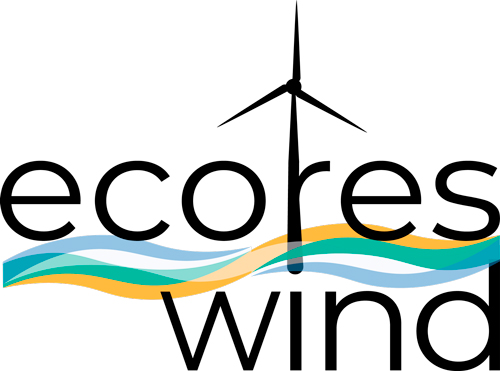Official Launch of ECORES WIND Project in Bilbao
On September 18th and 19th, the kick-off meeting for the ECORES WIND project took place at the Bizkaia Technology Park (Zamudio, Bilbao). This ambitious European initiative aims to contribute to the development of sustainable and environmentally friendly practices in the wind energy industry by offering a viable alternative to conventional resin systems. The initiative is led by the GAIKER FOUNDATION, a private, non-profit organization with 39 years of experience dedicated to research and providing innovative technological solutions to companies across various sectors. ICTP participates in this project through its Polymer Nanocomposites group.
Overview of ECORES WIND, Consortium, and Collaboration
ECORES WIND, a Research and Innovation Action funded by Horizon Europe, aims to revolutionize the wind energy sector by developing new circular resin systems adapted for composite structures in wind energy applications. The initiative will span 42 months, focusing on improving the circularity of wind turbine components, particularly the blades, to minimize their environmental footprint throughout their life cycle.
ECORES WIND addresses the environmental challenges associated with conventional resin systems in a rapidly evolving wind energy sector in Europe, developing alternatives that promote recyclability, extended lifespan, and efficient decommissioning processes. ECORES WIND aims to introduce innovative circular resins combined with advanced disassembly strategies, enabling cost-effective decommissioning and material reuse.
The project is led by the GAIKER FOUNDATION, with a consortium of 13 partners from across Europe, including leading research institutions, universities, and industry players. The diverse expertise of the partners will ensure a comprehensive approach to meeting the project's objectives.
The Challenge Ahead: The Need for Circular Wind Energy Generation
ECORES WIND is poised to make significant advances in the wind energy sector through the development of sustainable materials and processes. Wind energy plays a critical role in enabling the European Union to decarbonize and build a clean, resource-efficient, and carbon-neutral future. However, the current infrastructure used for generating clean electricity is paradoxically a source of pollution. While Europe is the leading market for wind power and the global leader in offshore wind energy, the industry is expected to grow by an average of 6.5% by 2030. Wind power capacity grew by more than 70% between 2019 and 2023. It is forecasted that from 2024 to 2028, global wind energy capacity will continue to grow rapidly. The Global Wind Energy Council (GWEC) has increased its growth forecast for 2024-2030 by 10%.
Wind farms also have a finite operational life. For the older wind farms, this is typically between 15 and 25 years. As Europe’s fleet of wind turbines ages, finding a solution for their end of life (EoL) is crucial. Many of Europe’s onshore wind farms are approaching the end of their planned operational life.
Strategies for addressing the replacement or renewal of wind farms are complex, and legislative frameworks for renewal are not yet established. Most wind turbine blades are made from composite materials, including glass and carbon fibers, plastics, and resins, with a typical lifespan of 25 years, which presents critical challenges for recycling.
Specific Objectives of ECORES WIND
The key objectives and innovations of ECORES WIND include the development of circular resin systems that enhance the recyclability and sustainability of wind turbine blades, and the incorporation of advanced disassembly strategies to ensure that turbine blades can be dismantled and their materials reused efficiently. The project is being developed in close cooperation with research and technology organizations (RTOs), universities, small and medium-sized enterprises (SMEs), and other relevant stakeholders to integrate the supply chain. This collaboration is essential to ensure that the proposed solution is industry-ready. Additionally, the initiative includes an evaluation of the ecological impact of the proposed solutions: the ecological benefits of the developed resin systems will be assessed and compared with cutting-edge materials, with the goal of establishing benchmarks to improve sustainability in the wind energy sector.
Contact: intern-pol@ictp.csic.es
